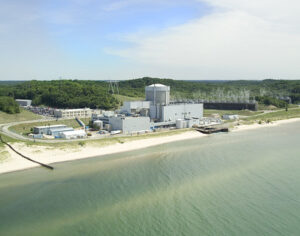A couple of days ago, I wrote about proposed changes to the Pell Grant program that would allow applicants to spend Pell eligibility on short-duration, non-degree workforce training. Study after study have shown that while low-cost, short-term training programs might get people back into the workforce quickly, they do not guarantee that those people stay in the workforce, or that these programs increase wages for participants. Most of these programs lead to low-wage, short-duration earnings.
Instead of spending extraordinarily to develop and produce these low-wage, niche programs with limited growth potential, what if Washtenaw Community College spent time, effort, and money developing a division that delivered only high-wage, high-demand educational programs? What if these programs focused on employment opportunities where the salaries met or exceeded the median income in Washtenaw County? Or fields with high-growth employment projections? And programs that coincided with the labor force capacity that coincided with the economic development plans for the region? (You know, so the region could compete for new industries and new investments by employers looking to relocate?)
Instead of providing “workforce development” that facilitated limited advancement opportunities, what if WCC focused instead on regional economic development? What if WCC was more invested in assembling the workforce Washtenaw County needs to attract new investment instead of assembling a revolving door workforce for a few employers?
Please don’t take this the wrong way; there’s a real need in Washtenaw County for low-wage jobs…
(Oh, wait…)
How about this? Let’s quit funding training programs for jobs that don’t allow people to earn enough to live in Washtenaw County. And it costs about 20% more to live in Washtenaw County than it costs to live in other places in Michigan, so we’re going to need some higher-dollar programs.
No more training for low-wage jobs
And here’s the kicker. Six of seven of WCC’s Trustees live in Ann Arbor. They know exactly how expensive it is to live in Washtenaw County because they live in the most expensive place in the county. And they have NEVER demanded that the WCC administration develop programs that increase the wages of the few people who manage to graduate.
By allowing this, WCC Trustees have opted to promote policies that commit Washtenaw County to a commuter workforce for its low-wage and entry-level jobs. It’s perfectly fine for low-wage workers to come to Washtenaw County to work during the day, but they don’t want these workers sleeping here at night. I’m not sure why the Trustees have signed on to this, but by not demanding that the Administration develop occupational programs with higher average earning potential, WCC’s Ann Arbor Trustees have tacitly approved the strategy of training low-wage workers who are welcome to serve here but aren’t welcome to live here.
Disgusting.
Photo Credit: Steve Smith, via Flickr
























